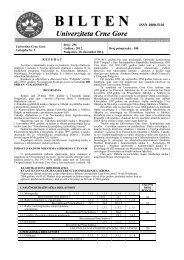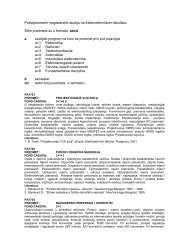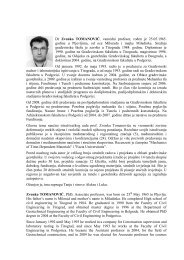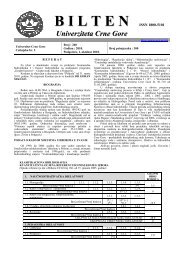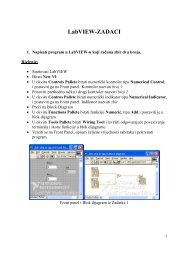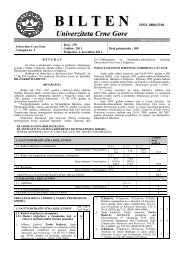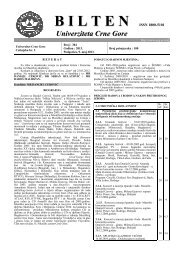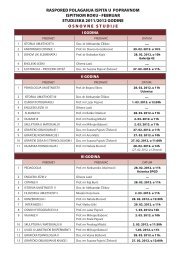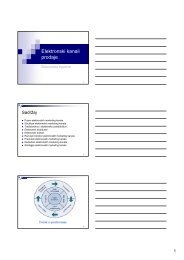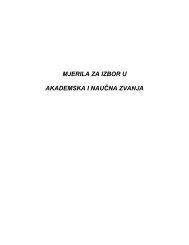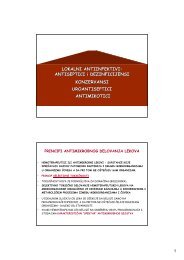WHO monographs on selected medicinal plants - travolekar.ru
WHO monographs on selected medicinal plants - travolekar.ru
WHO monographs on selected medicinal plants - travolekar.ru
Create successful ePaper yourself
Turn your PDF publications into a flip-book with our unique Google optimized e-Paper software.
Cortex Granati<br />
try–mass spectrometry (HPLC-DAD-MS-MS) in plasma, liver and kidneys.<br />
Five punicalagin-related metabolites were detected in liver and<br />
kidney, that is, two ellagic acid derivatives, gallagic acid, 3,8-dihydroxy-<br />
6H-dibenzo[b,d]pyran-6-<strong>on</strong>e glucur<strong>on</strong>ide, and 3,8,10-trihydroxy-6Hdibenzo[b,d]pyran-6-<strong>on</strong>e<br />
(25).<br />
Toxicology<br />
In animal experiments, intragastric administrati<strong>on</strong> of very large doses<br />
(not stated) of the alkaloids isolated from the bark caused respiratory<br />
arrest and death (26). Punicalagin has been reported to be toxic to cattle<br />
and rats (25). The chr<strong>on</strong>ic toxicity of punicalagin was assessed in rats.<br />
Treatment c<strong>on</strong>sisted of repeated oral administrati<strong>on</strong> of a 6% punicalaginc<strong>on</strong>taining<br />
diet for 37 days. Feedstuff intake, food utility index and<br />
growth rate were lower in treated rats during the first 15 days, but no<br />
significant adverse effects were observed. No significant differences were<br />
found in treated rats in any blood parameter analysed (including the<br />
antioxidant enzymes glutathi<strong>on</strong>e peroxidase and superoxide dismutase)<br />
with the excepti<strong>on</strong> of urea and triglycerides, which remained low<br />
throughout the experiment (25).<br />
Clinical pharmacology<br />
Toxicology<br />
Ingesti<strong>on</strong> by humans of more than 80.0 g of d<strong>ru</strong>g may cause severe vomiting<br />
with blood, dizziness, fever, tremor and collapse. After 10 hours to<br />
3 days temporary blindness may occur, which usually resolves after several<br />
weeks. Ingesti<strong>on</strong> of pelletierine may cause visual disturbances with<br />
mydriasis (dilated pupils), dizziness and headache, as well as l<strong>on</strong>g-lasting<br />
anaesthesia or somnolence. Further symptoms of overdose include colic,<br />
cold sweat, dizziness, headache, muscle cramps, weakness or paralysis of<br />
the lower extremities, nausea, cardiac and respiratory collapse (27).<br />
Adverse reacti<strong>on</strong>s<br />
Comm<strong>on</strong> adverse events observed in humans include dizziness, visual<br />
disturbances, weakness, calf spasms and tremors. Large overdoses<br />
(> 80.0 g) of the c<strong>ru</strong>de d<strong>ru</strong>g may lead to dizziness, mydriasis, severe headache,<br />
vertigo, vomiting, lethargy, collapse and possible death due to the<br />
alkaloid c<strong>on</strong>tent (26).<br />
C<strong>on</strong>traindicati<strong>on</strong>s<br />
Hypersensitivity or allergy to the bark.<br />
113



